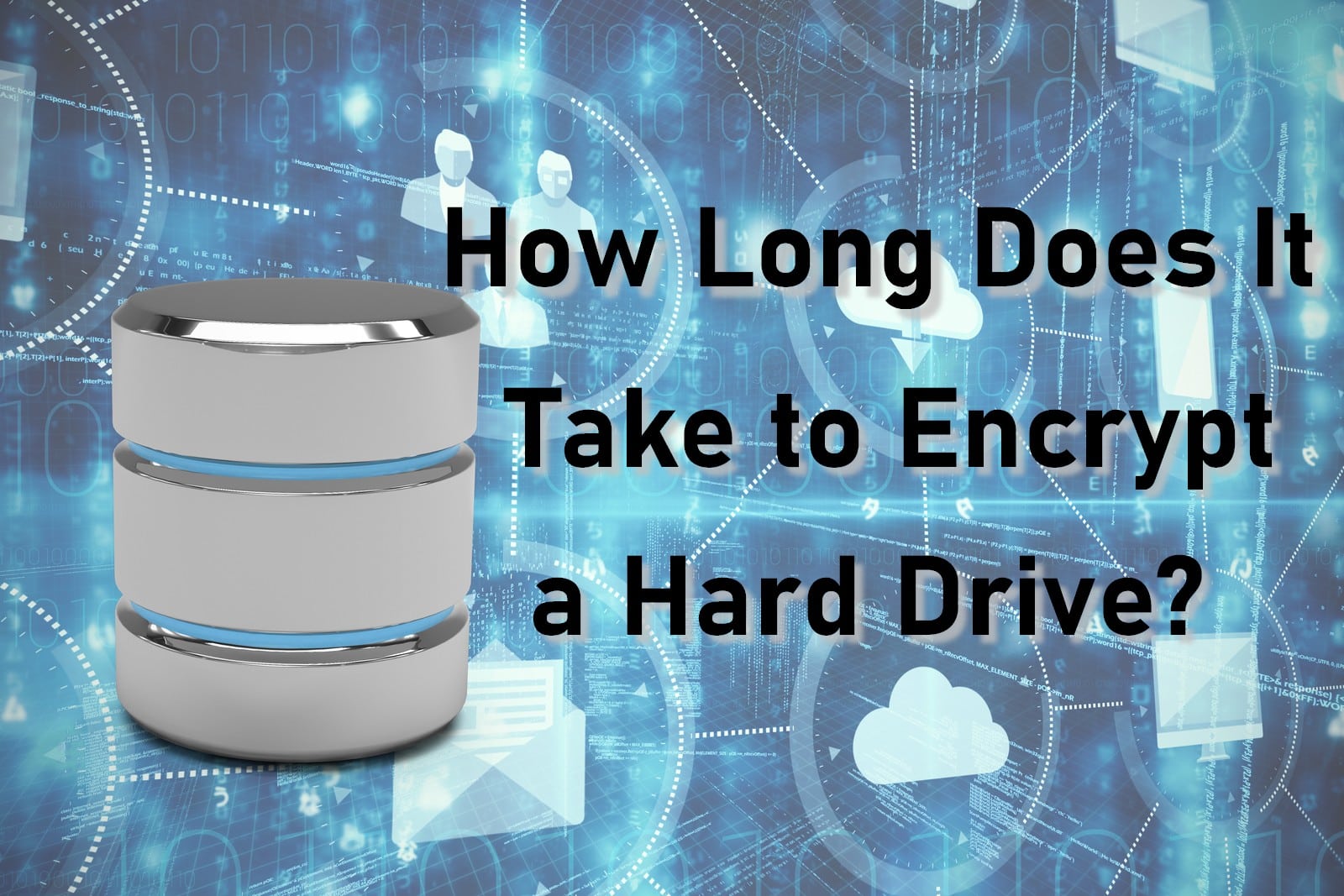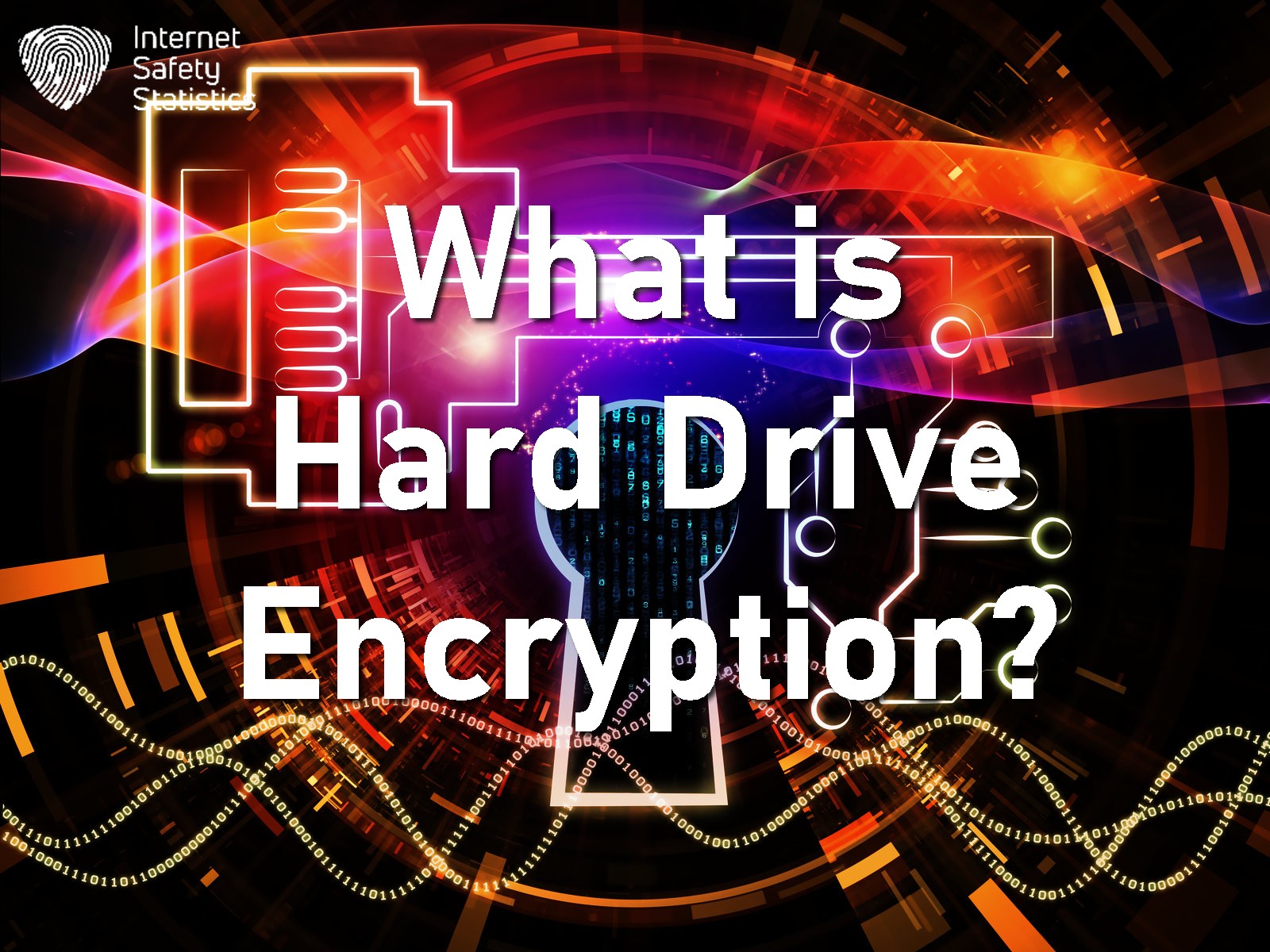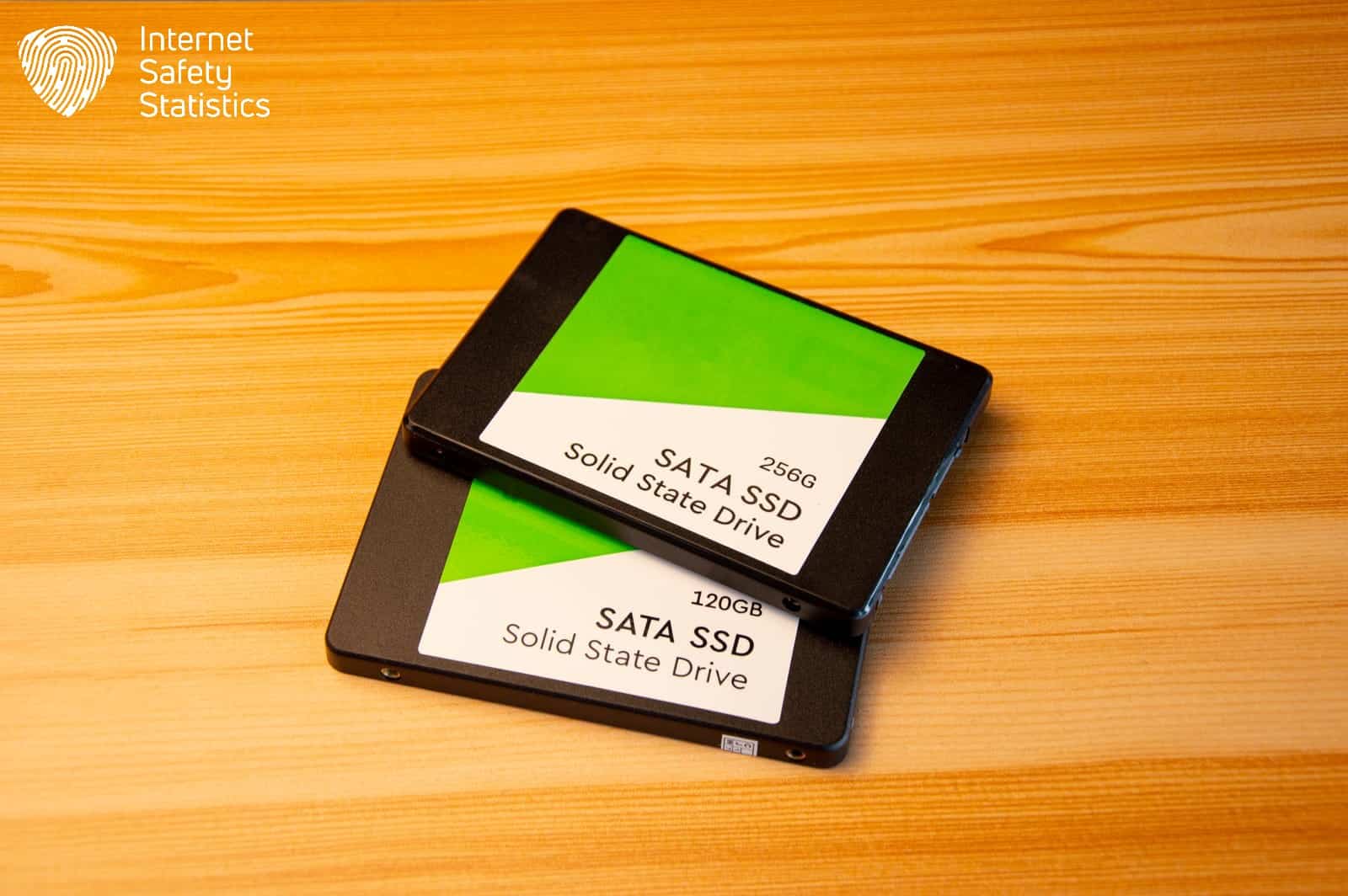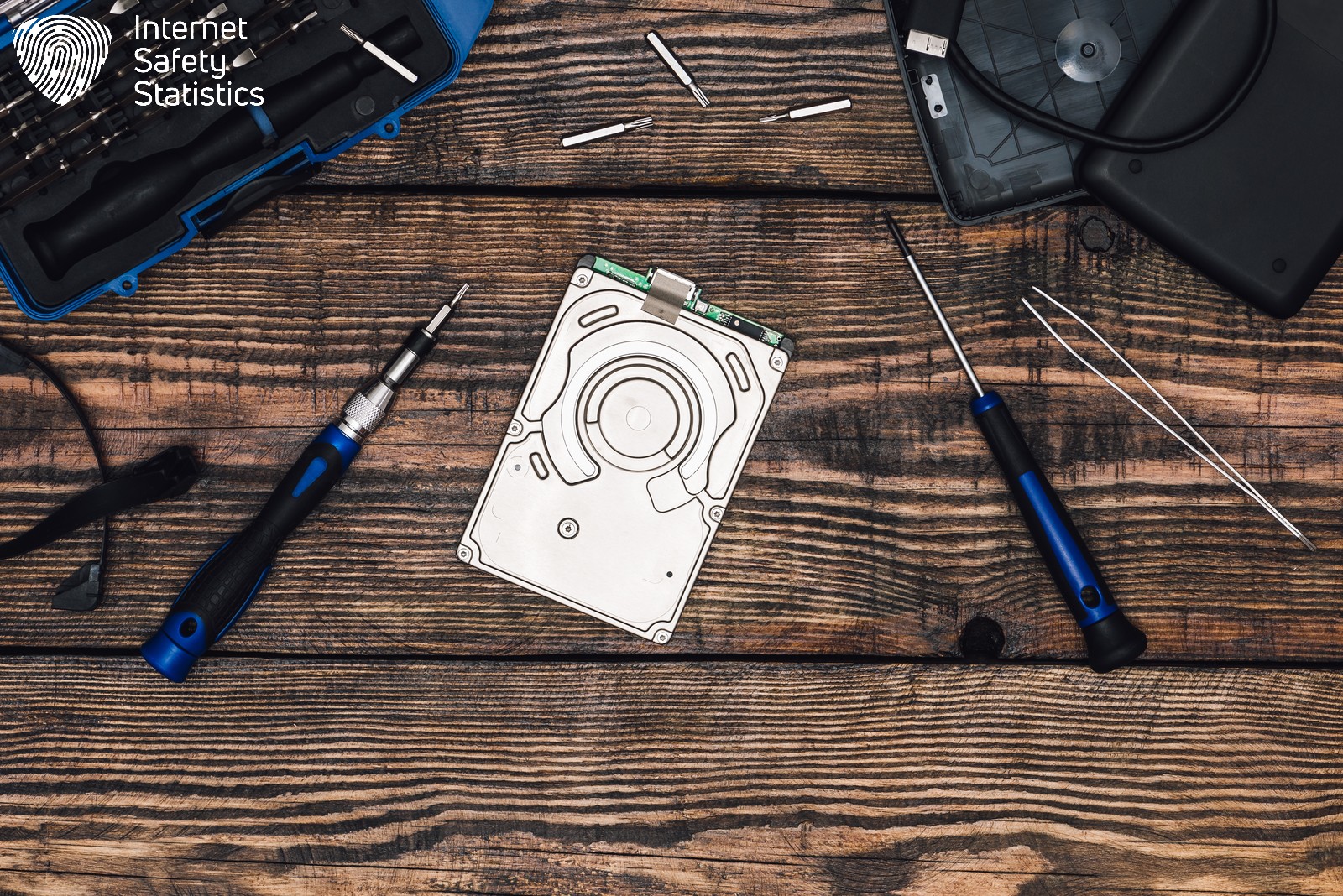
Safeguarding your data with antivirus and firewall agents is sometimes insufficient to ensure the safety of your data. Encryption is one of the best protective measures to safeguard your data. If you are physically transferring data from one place to another, transferring the hard drive onto which the data is stored, encryption becomes necessary to protect this data in transit.
We shall remove the usual timidness surrounding hard drive encryption from its meaning and importance, and we will answer the following question: how long does it take to encrypt a hard drive?
What is Encryption?
Encryption is one of the security measures designed to protect sensitive information by converting it into unreadable code, thereby thwarting unauthorised access. This intricate process utilises algorithms and cryptographic keys to transform plain text or data into an incomprehensible format without the corresponding decryption key. The encryption algorithm acts as a set of instructions governing the encryption, while the decryption key is the unique code to unlock and decipher the encrypted data.
The importance of encryption arises in events when even unauthorised individuals gain access to encrypted information; they cannot interpret or utilise it without the decryption key. Encryption plays an integral role in protecting data integrity, confidentiality, and privacy across various digital platforms, serving as a fundamental component in securing sensitive information in today’s interconnected and data-driven world.
What is Hard Drive Encryption?

Hard drive encryption is a critical security measure that renders the stored information on your hard drive unreadable without the proper decryption key. This process fortifies data protection by making the stored information indecipherable to unauthorised entities. If the hard drive was physically accessed or removed, the data remains impervious, requiring the decryption key for interpretation.
Hard drive encryption is vital to maintain data integrity and confidentiality and mitigates the risks associated with data breaches or unauthorised access. This security layer not only safeguards against theft or unauthorised use of physical devices but also ensures that even if digital breaches occur, the data remains a formidable challenge to unauthorised access, contributing significantly to overall data security strategies in today’s technology-driven landscape.
Why Do You Need to Encrypt Your Hard Drive?
Encrypting your hard drive is imperative for multifaceted reasons, primarily centring around bolstering data security.
Data Breach Prevention
It is a robust defence mechanism, shielding sensitive information from unauthorised access or potential theft. Encryption ensures that even if physical or digital breaches occur, critical information remains safeguarded by converting data into an unreadable format without the designated decryption key.
Compliance with Regulations
Compliance with industry standards and regulations is a driving force behind adopting hard drive encryption. Many sectors, such as healthcare or finance, mandate protecting specific data types through encryption as a regulatory requirement. Adhering to these standards mitigates legal risks and ensures the trust of clients and stakeholders by demonstrating a commitment to data security.
Enhanced Security for Remote Work
The rise of remote work has blurred the lines between office and personal environments. Sensitive company data may now reside on laptops used in coffee shops, co-working spaces, or home offices. Hard drive encryption adds an auxiliary layer of security, ensuring that the crucial information remains unreadable even if a device falls into the wrong hands. Hard drive encryption empowers employees to work securely and confidently outside the traditional office setting.
Privacy
Lastly, hard drive encryption is instrumental in preserving privacy. It is a barrier, preventing prying eyes or malicious actors from accessing personal and confidential data. Whether financial records, private communications, or sensitive documents, encryption establishes a digital vault around this information, reinforcing the user’s control over their data and mitigating the potential consequences of unauthorised access.
How Can You Encrypt Your Hard Drive?

There are two main methods to follow for hard drive encryption. The first method involves using built-in or integrated encryption software, such as BitLocker and FileVault for Windows and macOS. The second method includes using third-party encryption software such as VeraCrypt or DiskCryptor.
It’s worth noting that you can use nearly all the following encryption agents, built-in and third-party ones, to encrypt USB drives as well. They use the same methods to encrypt these portable devices as they do with hard drive encryption.
Hard Drive Encryption Using Built-in Encryption Software
Hard drive encryption using built-in encryption software involves employing your operating system’s designated tool and technology tailored to your system’s needs. This method varies from one operating system to another. Some of the general steps for popular operating systems include:
Windows Operating System
BitLocker is Windows’ built-in encryption tool and provides a straightforward approach to hard drive encryption, ensuring data security. Users can activate BitLocker through the device’s Control Panel or Settings, setting up a secure password, using a PIN or utilising hardware-based authentication.
macOS
macOS users can turn to FileVault for hard drive encryption. They can find it in their system preferences, and it encrypts the entire disk and prompts users to set up a recovery key. This step ensures data accessibility even if the primary login credentials are forgotten.
Linux
Linux users can use LUKS, or Linux Unified Key Setup, or dm-crypt for hard drive encryption. The two tools offer disk encryption at the block device level, securing data on Linus operating systems.

Third-Party Software
Third-party encryption software makes cross-platform encryption achievable. There are various applications to use, such as Vera Crypt and DiskCryptor, that are compatible with several operating systems. They make hard drive encryption attainable regardless of the underlying platform.
Although several of these encryption agents are compatible with numerous operating systems, you must choose the appropriate encryption methods that comply with your specific needs, preferences and operating system specifications. Whichever encryption method you select, it’s crucial to follow best practices, such as creating secure passwords and storing recovery keys in a safe location, to ensure the effectiveness of the encryption process.
What Factors Affect the Duration of Hard Drive Encryption?
There are several factors to consider when calculating the time it takes to encrypt a hard drive. The factors affecting the time it takes to encrypt a hard drive include:
Drive Size and the Amount of Data
Firstly, the size of the hard drive plays a pivotal role – larger drives necessitate more time to encrypt thoroughly. This is because every bit of data must undergo encryption, and the sheer volume of information directly correlates with the time required.
On another note, as the quantity of data to be encrypted increases, the time it takes for the encryption process to complete will also increase. However, the relationship between data amount and encryption time is not always linear. Some algorithms may be more efficient with larger data sets, while others may see a more pronounced increase in processing time.
Drive Type
There are two main drive types: SSDs, or Solid-State Drives, which use flash memory chips to store data electronically, and HDDs, or Hard Disk Drives, which use spinning platters with magnetic sectors to store data mechanically. It’s faster to encrypt SSDs because they operate electronically, as there aren’t any physically moving parts, such as the head movement required for HDDs. SSDs can access multiple memory cells simultaneously, allowing them to encrypt data blocks for a speedy process, and they also generally have higher data transfer rates than HDDs.
Processor Speed
Faster processors are more capable of swiftly performing complex calculations involved in encryption. A robust processor can significantly reduce the time needed for the encryption process. Faster processors and ample RAM accelerate encryption.
Encryption Method
The choice of encryption algorithm also impacts the time frame. Stronger encryption algorithms, designed to provide enhanced security, often involve more intricate mathematical computations, leading to a longer encryption duration. However, the trade-off is the heightened level of data protection.
System Activity
Ongoing system activities contribute to the overall time required for encryption. Running resource-intensive tasks concurrently can compete for processing power, potentially slowing the encryption process. For optimal results, it is advisable to initiate encryption during periods of low system activity to minimise potential delays.
How Long Does It Take to Encrypt a Hard Drive?
Considering the aforementioned factors when encrypting a hard drive, we can put several general estimates, which might take anything from twenty minutes up to several hours.
- Encrypting an empty 500GB SSD drive will take several minutes.
- A full 1TB HDD drive will need hours to finish encryption.
- If you’re encrypting larger hard drives, it might take up to a day or more to finish encrypting them. Larger drives take more time.
Important Tips to Consider During Hard Drive Encryption

Before you begin your hard drive encryption, please always back up your data before the encryption process in case of errors. Encryption errors can cause significant data loss, and it might be impossible to retrieve lost data due to these errors. When setting a secure password for your decryption, choose a strong one and store it safely.
At the time of encryption, it’s best to refrain from using your device; encryption can slightly reduce drive and system performance because it consumes system resources and reduces the ones available for your other system operations. You also need to weigh the benefits and costs of hard drive encryption as you assess the importance of data protection against potential performance implications.
Consider encrypting your cloud-stored data in services like Google Drive, Dropbox and OneDrive. While several services offer data encryption in transit and at rest, it’s best to encrypt your data before uploading it to the cloud to be in control of your data’s privacy. Before you choose your designated cloud storage service, read their service documentation or settings to understand their encryption techniques better. If you need stronger security or more control over your data, research third-party encryption methods to encrypt it before uploading it to the cloud.
Data encryption will remain among the strongest methods to protect personal and work information. In a world of evolving cyber threats, utilising every possible data-protection method is vital.
